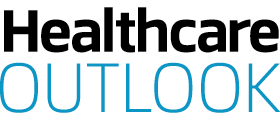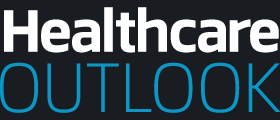Based in South Africa, THINK utilises the latest technology and industry innovations to improve the treatment of infectious diseases. Trevor Mvundura, Executive Director and Country CEO, tells us more about the non-governmental organisation’s commitment to advancing the health and well-being of vulnerable communities.
TACKLING PUBLIC HEALTH ISSUES
According to the World Health Organisation (WHO), tuberculosis (TB) remains the leading cause of death amongst people living with HIV across the world, with the two illnesses being intrinsically linked and in need of vital support.
It is from this critical need that THINK was established by Dr Kristina Wallengren as a non-profit company in 2013, with the founding purpose of making a difference to individuals affected by TB and HIV.
Today, the organisation has broadened its scope to improve the health and well-being of vulnerable communities locally and globally.
With its current head office in Hillcrest, Durban, South Africa (SA), THINK is rapidly expanding throughout the country and beyond, embarking on a strategy to extend its regional footprint across Eswatini, Mozambique, Namibia, and Zimbabwe, to ensure that its industry experience and knowledge is shared throughout the continent.
Meanwhile, a partnership office was established in Denmark three years ago, ensuring that the organisation’s global impact is sustainable and long-lasting, and assisting with connection between the Global North and Global South.
“In 2023, THINK not only celebrated the milestone of a decade in business, but also the triumph of resilience, grit, and unwavering dedication,” introduces Trevor Mvundura, Executive Director and Country CEO of the company.
“We have contributed to reshaping the health sector in Africa and worldwide, and have left a permanent mark on the canvas of progress, empowering lives, lifting community spirits, and igniting the flames of inspiration through countless efforts.”
THINK’s work spans five central domains: community systems strengthening; education, capacity building, and training; technological advancement; research and clinical trials; and health system strengthening.
Although the organisation’s initial focus was on TB and HIV, it has expanded to address a wider spectrum of critical challenges related to planetary health, including mental well-being, digital health, and climate health.
THINK’s holistic approach spans prevention, treatment, and care, as well as developing new diagnostic tools, effective treatment regimens, improved vaccines, and innovative healthcare delivery approaches. This addresses the underlying detriments and risk factors that exacerbate health challenges.
“As a result of our work, the treatment of TB has been reduced from two years to six months, whilst three new drugs have been developed for adults and children, and WHO’s guidelines for TB treatment have been altered three times,” Mvundura proudly tells us.
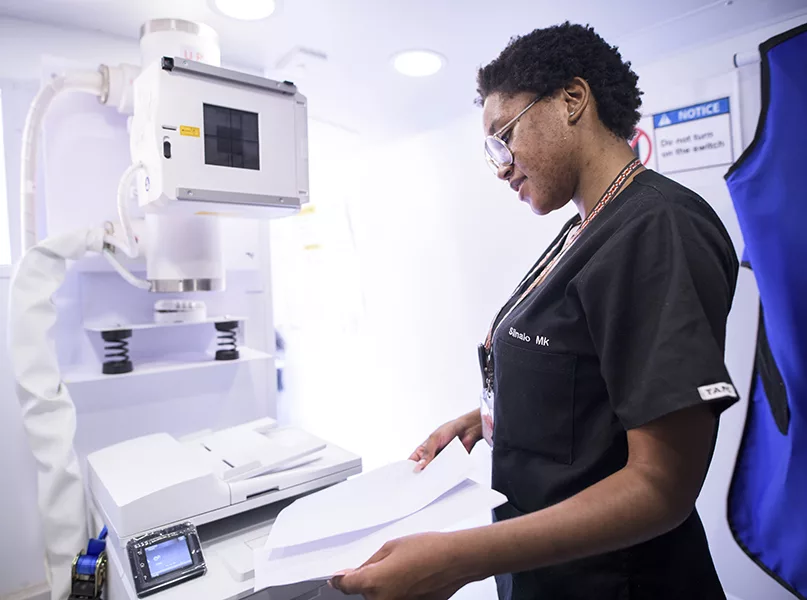
CUTTING-EDGE SOLUTIONS
The rise of digitalisation in South African healthcare and the integration of technology integration of technology into healthcare systems present myriad opportunities to improve the quality of care and accessibility of health services, particularly in regions underserved by conventional industry frameworks.
The streamlining of health systems via comprehensive digital health infrastructures is increasingly important in understanding industry trends, including artificial intelligence (AI) and data analytics, which are being used to predict outbreaks and personalise patient care.
Furthermore, these technologies can help allocate resources more effectively, identifying at-risk populations and tailoring interventions to meet the specific needs of different communities.
However, the digitalisation of healthcare also presents immense challenges.
“Not everyone has equal access to the internet or digital devices, which can exacerbate existing health disparities. Additionally, ensuring the privacy and security of patient data in the digital realm is paramount to maintaining trust in digital health services,” Mvundura warns.
Therefore, as the organisation navigates digital transformation, its focus remains on leveraging technology to enhance public health and ensure nobody is left behind.
Additional challenges can be witnessed in the major gaps of the healthcare system that need addressing, as each patient needs a different level of care depending on the stage of their illness.
“The healthcare cascade is like an onion; the first layer includes all the people who have TB, the second represents those who realise they need care, and the third represents those who get the right test and so on. Then, you have the fourth and final layer in the centre of the onion representing the small segment of people cured of TB,” explains Mvundura.
To address the gaps in populations with varying stages of the condition, THINK has developed an innovative technological solution in the form of the Comprehensive Active TB Tracker (CATT), a software system designed to systematically tackle shortages in healthcare delivery.
Unlike traditional databases that rely on retrospective analysis, the CATT system serves as a real-time tool for healthcare providers to intervene as soon as viably possible. Although developed in SA, the technology has been used across the continent and in other long-term or chronic treatment cases.
As such, THINK’s innovative approach is building resilient healthcare systems that deliver quality care and stand prepared for the challenges of pandemics and climate change, the effects of which have disrupted access to healthcare facilities in several districts where the company is active.
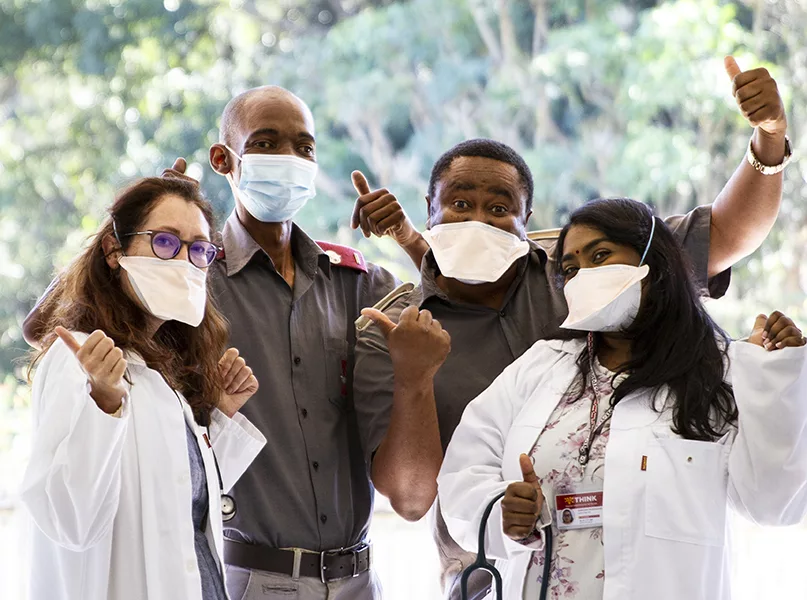
A SUCCINCT TECHNOLOGICAL ADVANTAGE
Alongside its capabilities in international R&D, THINK has spotted the untapped potential of the Metaverse as a platform for doing good, recognising its transformative capabilities beyond social media and gaming.
As an immersive digital environment, the Metaverse presents an ideal climate for building awareness and providing information in an engaging and captivating manner. Through THINK avatars, the organisation connects with younger generations, early adopters, and future users of social media platforms.
The aim is to establish an omnipresence in the Metaverse through THINK avatars and wearable non-fungible tokens (NFTs) across multiple immersive social media technology platforms.
This also connects patients to online healthcare providers by utilising anonymity. Therefore, users feel more comfortable exploring sensitive topics related to mental and sexual health and relationships.
“This groundbreaking approach has generated significant interest and collaboration, allowing THINK to more effectively reach and support individuals in need with essential care and assistance,” expresses Mvundura.
Moreover, by capturing the attention of potential collaborators in the technology, investment, and health industries, the organisation’s innovative Metaverse initiative is sure to leave a lasting impression.
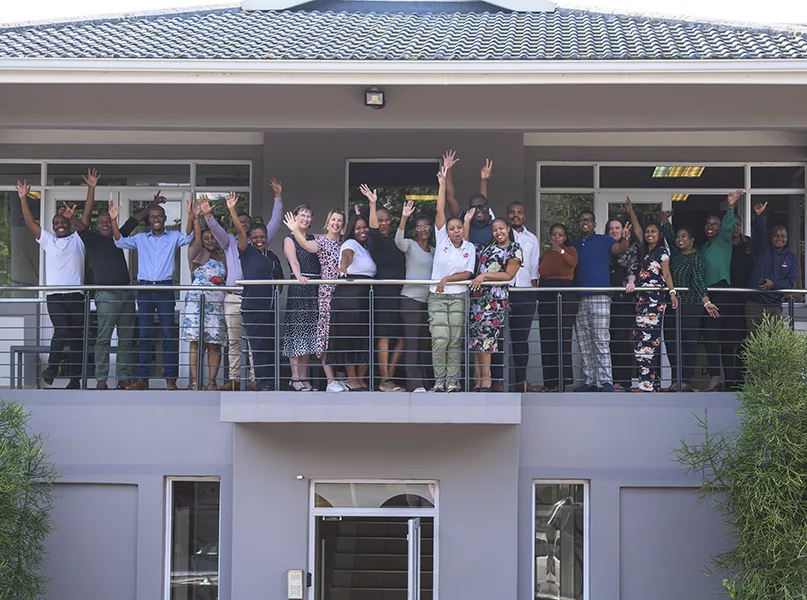
Building upon its foundation of forward-thinking healthcare solutions, THINK places immense importance on cultivating and maintaining robust relationships with tech firms.
It prioritises the alignment of vision and values when seeking partners, who are not just vendors but allies in its transformative public health landscape.
The organisation engages in continuous dialogue and co-development initiatives with its tech partners and suppliers. Fostering a collaborative environment allows for the tailoring of technological solutions to meet the specific needs of its programmes and the unique challenges of the regions in which it operates.
“We believe in growing together, which involves mutual investments in capacity building and knowledge sharing. This approach not only strengthens our suppliers’ understanding of the public health domain, but it also allows THINK to stay at the forefront of technological advancements,” reflects Mvundura.
Thus, through strategic partnerships with tech firms, THINK is able to leverage the latest in digital health and AI solutions to build resilient healthcare systems, tailor interventions to individual patient needs, and ultimately save more lives.
“The innovations developed through these collaborations not only improve immediate healthcare delivery but also bolster our preparedness for future crises.
“In essence, our relationships with tech firms are not just important but indispensable to the mission of THINK, driving forward our vision of a healthier, more equitable world.”
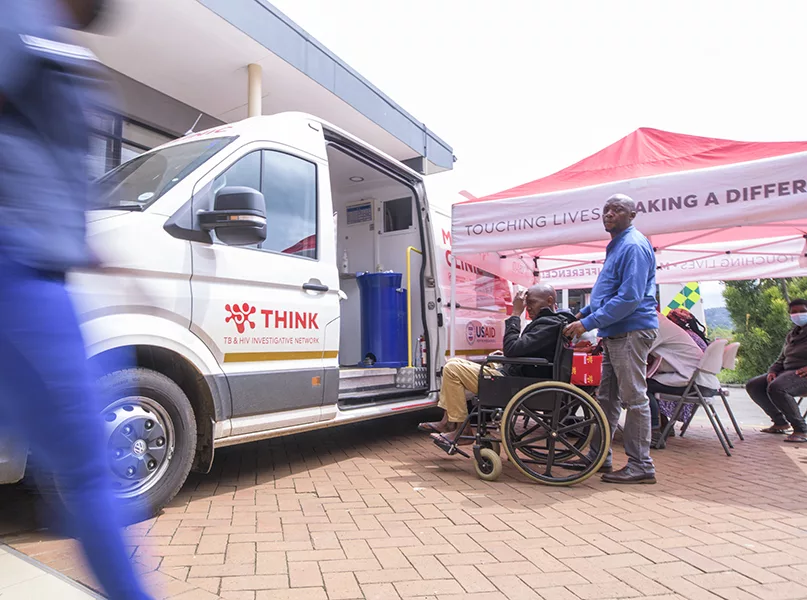
INTEGRATING INNOVATIVE SOLUTIONS
In its commitment to harnessing technological innovation, two recent projects stand out as exemplars of THINK’s dedication to advancing public health through cutting-edge technology.
Funded by the United States Agency for International Development (USAID), the organisation’s first project comprises a mobile X-ray TB screening initiative that has shown recent promise.
By utilising mobile vans equipped with digital chest X-ray (DCXR) technology, this initiative aims to identify TB cases earlier, especially in hard-to-reach areas. The mobile units are deployed based on the analysis of TB hotspots using geographic information system (GIS) technology, ensuring targeted and efficient screening efforts.
The second pivotal project is a data programme funded by a grant from the Bill & Melinda Gates Foundation, which explores the application of AI to bridge the data gap in healthcare decision-making, especially in low and middle-income countries (LMICs).
A significant aspect of this initiative is the establishment of THINK’s Digital Discovery Hub, which will serve as an AI and computer lab dedicated to advancing the project through hybrid training sessions in programming for data managers and coordinators in SA and the broader sub-Saharan region.
Both projects exemplify the organisation’s commitment to integrating innovative solutions to meet the healthcare needs of underserved populations.
As it looks towards the future, THINK’s overarching goal remains steadfast – to maintain and enhance the quality of the services it currently provides to nearby communities.
In a nutshell, the organisation hopes to expand and diversify its operations and, in doing so, strives to amplify its impact, support more vulnerable populations, and contribute to the global effort to improve public health outcomes.
“The journey ahead is filled with opportunities and challenges alike, and we are committed to navigating it with dedication, innovation, and collaboration at the forefront of our efforts,” concludes Mvundura.
